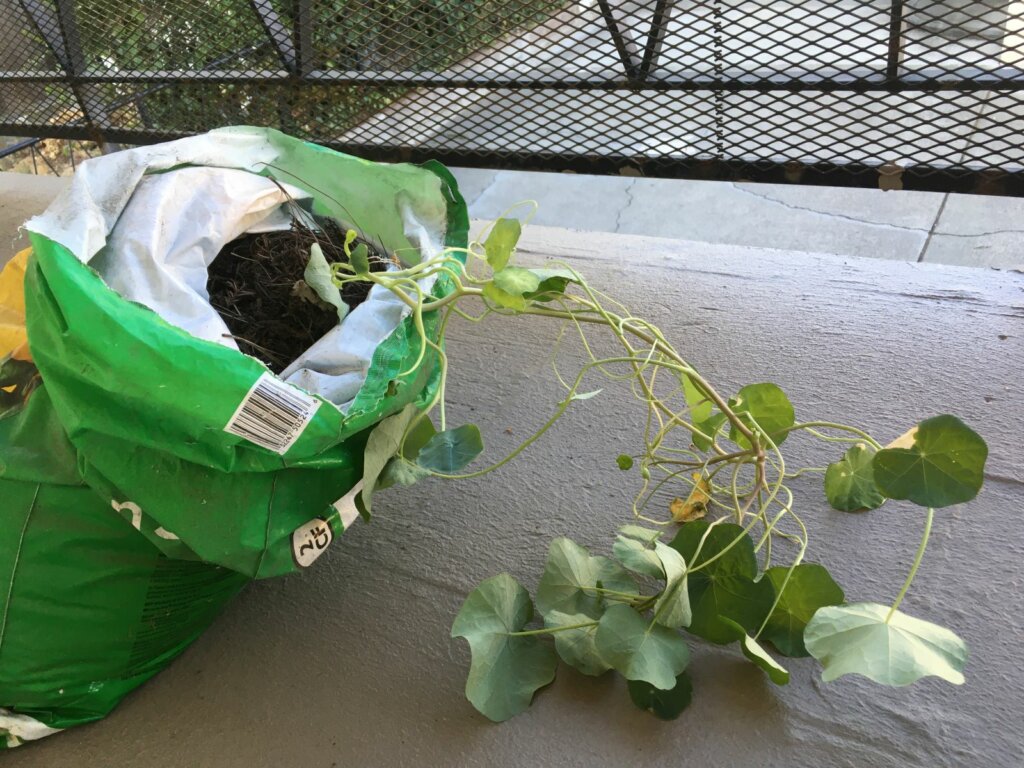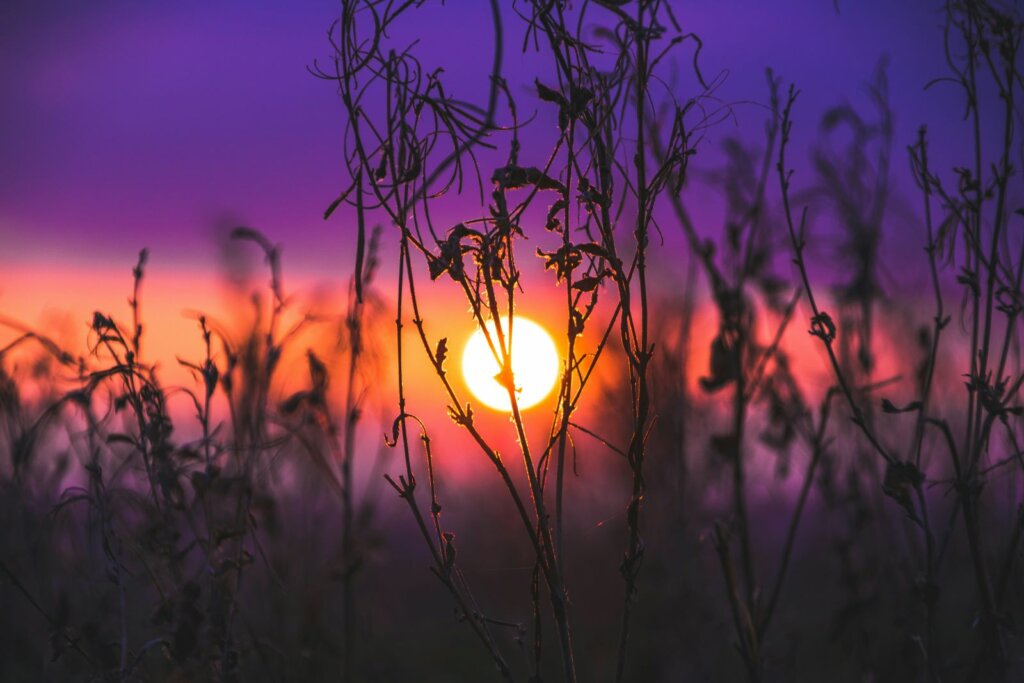I feel incredibly off. In large part, it’s because I’ve been sick with a cold for the last nine days. Add in lack of sleep due to said cold, disruption at my apartment because of construction, Trump returning to the White House, the collective heartbreak around the LA wildfires, continued destruction of Gaza, and all the other tragedies in the world, and I want to pull a Rip Van Winkle. If I could go to sleep and wake up once everything is better, that would be great.
When life is like this, I remind myself of a few things: One, I don’t need to tackle my life’s problems (or the world’s problems) all at once. I do what I can when I can. And two, what’s called for is the next right action. The next right action varies but it’s always something small and manageable like taking a shower, calling that person, or running an errand. Little things snowball into big things and I can trust the big things take care of themselves when I focus on taking the next right action over and over again.
Lastly, to keep myself from falling into a pit of despair, it’s important to find the good and remember the miracles all around me. To that end, I’m resharing a post from August 2023. I hope it helps you as much as it does me.
After a long day of staring at my computer screen, I walked outside to my apartment complex’s terrace where something caught my eye. Leaning against the far wall beneath an overhang is a bag of detritus. It’s filled with dirt and pine needles and everything workmen scooped out of our gutters from at least eight months ago, if not longer. Do you know what was spilling out of that bag?
A well-developed nasturtium vine. There are so many things about this that are astounding. Number one, I’m on that terrace every few days watering my plants. How did I not notice it before? And number two, it hasn’t rained here in MONTHS. How did that nasturtium vine survive?!? It’s not like any of my neighbors were watering a bag of soil in an attempt to keep a plant alive. And yet, not only did the vine survive, it thrived as you can see in the picture.
When I saw this plant, I literally laughed out loud because it was so unexpected and also miraculous. It reminded me that miracles are everywhere if we look for them. Miracles often have the connotation of being something big and obvious, but they can also be small and discreet, like this nasturtium vine.
I could use more miracles in my life. It’s easy for me to become disheartened by the ever-present pessimism in the news. Fires leveling towns. Floods. Famines. It’s a lot. And yet, if I look around, I also see evidence of miracles. Back in November, scientists captured footage of the black-naped pheasant-pigeon, which hadn’t been seen since 1882! In Brazil, the Golden Lion Tamarin used to be on the brink of extinction with about 200 animals in the wild, but the population has rebounded to around 4,800, according to a recent study.
Miracles happen every day with people surviving deathly car crashes, getting pregnant when they thought they were infertile, or walking again when they were told it was impossible. It’s easy to think, “Well, that wouldn’t happen to me,” but what if it could? What if you could also receive a miracle? And like me with the nasturtium plant, what if miracles are all around and we’re just not noticing them?
Given the choice between a world where we’re all doomed and one where miracles occur, I vote for the latter. It reminds me of a concept we have in my spiritual tradition called madhuvidyá, which literally means “honey knowledge.” It requires seeing everything as an expression of an infinite loving consciousness, also known as Brahma.
My spiritual teacher says, “This madhuvidyá will pervade your exterior and interior with … [ecstasy] and will permanently alleviate all your afflictions. Then the ferocious jaws of [degeneration] cannot come and devour you. The glory of one and only one benign entity will shine forth to you from one and all objects.”
That may not seem relevant but for me, practicing madhuvidyá means remembering God is here, there, and everywhere. Because everything is Brahma, everything is a manifestation of that infinite loving consciousness. In that framework, OF COURSE miracles are everywhere. How could they not be?
I dream of a world where we recognize the strange and the unlikely occurs all the time. A world where we make room for magic and mystery. A world where we understand this entire universe is composed of an infinite loving consciousness that is all-knowing and all-powerful. A world where we recognize if that’s true, if anything can happen, then miracles can too.
Another world is not only possible, it’s probable.
As I thought about how to close this year (last post of 2024!), the blog that kept coming to mind is one I wrote almost exactly eight years ago. So no, I’m not in Malibu, nor have I flown home from a retreat just yet – that happens on Wednesday – but the message is still relevant. Enjoy.
For the past five days, I’ve lived in a bubble. Members of my yoga and meditation group gathered in Malibu where we sang, danced, meditated, and learned from each other. Gazing at the ocean surrounded by so much beauty and love, it was easy to forget the real world. And then I flew home.
Re-entry startled and unnerved me, raw and sensitive as I am operating on a few hours of sleep. On the drive home, I saw police officers tackling a man on the shoulder of the highway. It wasn’t me being chased, but my heart started pounding nonetheless. On the same ride, I saw hearts painted on the roof of a building. All of these things coexist.
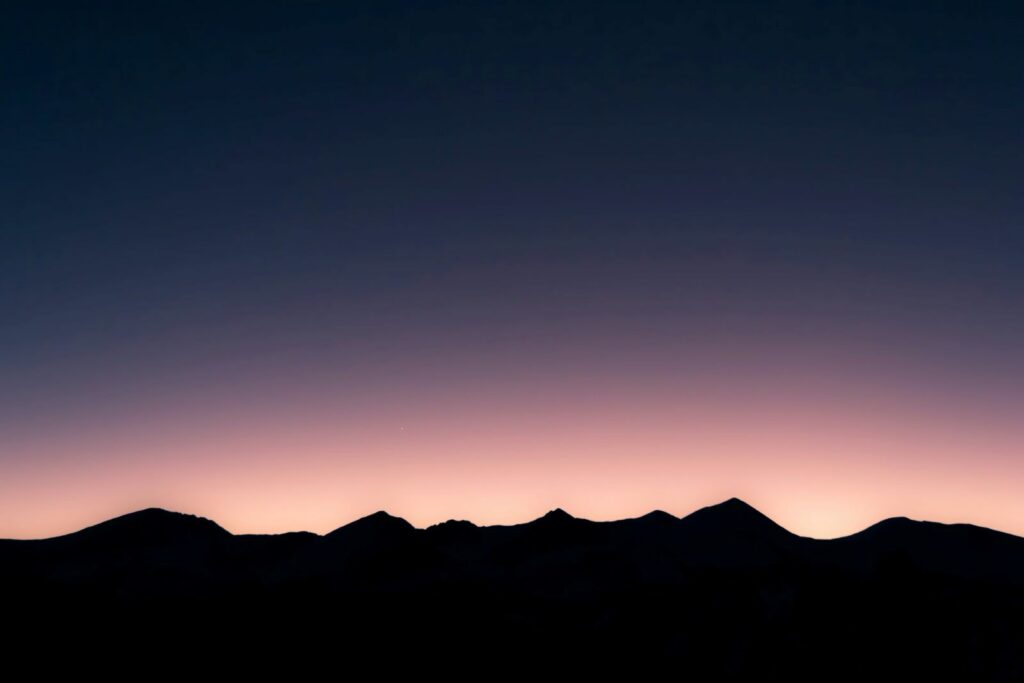
It’s a new day, a new dawn, and (almost) a new year. Photo by Blake Verdoorn on Unsplash
I don’t know what this year holds. I’m guessing it will be a mix of things, just like my ride home. There will be happy things and scary things and sad things and awesome things. For some of us, there will be an unequal mix. But feeling my heart pound watching someone else’s experience, reminds me we are all in this together. We all belong to each other and we are all responsible for each other. We are not as separate as we’d like to believe. We are all connected and what affects one person ripples out.
As we start this new year, I want to quote my spiritual teacher because the message seems relevant. He said:
Just as the advent of the purple dawn is inevitable at the end of the cimmerian darkness of the interlunar night, exactly in the same way I know that a gloriously brilliant chapter will also come after the endless reproach and humiliation of the neglected humanity of today.
Those who love humanity and those who desire the welfare of living beings should be vigorously active from this very moment, after shaking off all lethargy and sloth, so that the most auspicious hour arrives at the earliest.
As we enter this new year, let us all greet the purple dawn. Let us all experience a gloriously brilliant chapter. And let us all work together to bring that “auspicious hour” sooner rather than later because we aspire to live in a beautiful new era.
I dream of a world where we remember we’re all connected. A world where we understand we all belong to each other. A world where we work together to create a beautiful and brilliant life where everyone is treated with love, kindness, and dignity. A world where we rise up to greet the new dawn awaiting us.
Another world is not only possible, it’s probable.
When I take a zoomed-out perspective on my life since the start of the year, I notice numerous endings that led to beginnings that led to endings. There has been so much upheaval in practically every area of my life – health, finances, relationships, and where I live. It reminds me of a story from Dr. Clarissa Pinkola Estés’ Women Who Run With the Wolves.
The one that speaks to this dynamic is the Skeleton Woman. Click the link for an animated rendering of the story, but the abbreviated version is a fisherman hooks a skeleton woman and not realizing she is caught on his line, tries to run from her. He bumps along the land with the woman on his tail and dives into his hovel thinking he’s safe. Alas, it is not so. She is inside his home, limbs akimbo.
In the candlelight he takes pity on her, untangling her from his line, righting her limbs. Then he falls asleep and a tear leaks from the corner of his eye, which the Skeleton Woman drinks up thirstily. While he’s still sleeping, she pulls out his heart, holds it in her hand and flesh is drummed back onto her bones. She becomes a human again. She returns his heart and then falls asleep next to him, and “that is how they awakened, wrapped one around the other, tangled from their night, in another way now, a good and lasting way.”
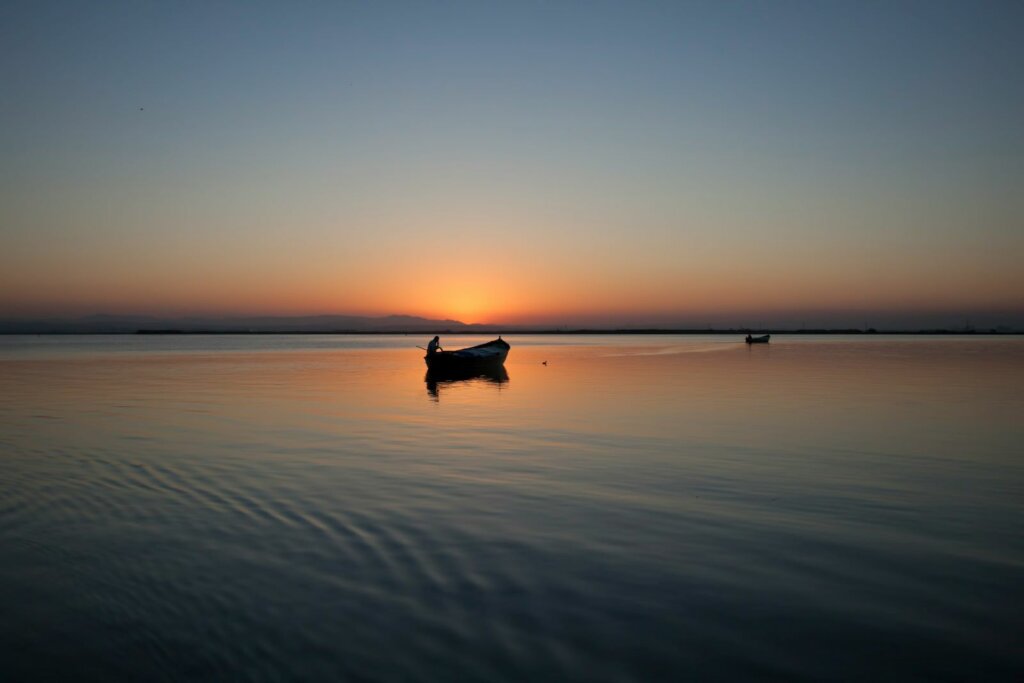
A sunrise follows every sunset. Photo by Óscar Dejean on Unsplash
Estés asserts for any relationship to survive and thrive, people must reckon with Lady Death, which the Skeleton Woman represents. They must welcome her into their home, tend to her, and make peace with her in order to breathe life into something new. I think the principle applies not only to relationships but all things. We must make peace with the fact a beginning will have an ending, followed by another beginning. I’m getting better at remembering that but it’s still hard. When I experience an ending, some part of me tries to hold on, to make it be what it was. But an ending always clears the way for something new.
A concrete example is I’ve made a bunch of new friends because many of my old friendships have withered or died. Instead of looking at the tattered remains of what was, I’ve started cultivating new friendships with people who make time for me. I’m profoundly grateful and as a result, I’m doing some cool and interesting things I wouldn’t have before like singing in a one-day choir.
The more I give into and accept the life/death/life cycle, the more serene I feel. The less scared I am of the future and what could happen because I understand death will always bring a beginning and then an ending and then another beginning. And that’s true for everyone.
I dream of a world where we embrace Lady Death. A world where we no longer fear death as something permanent and final, but instead see it as the precursor to something new. A world where we mourn, we grieve, and we accept we’ll always have to confront death in some form or fashion. But it doesn’t have to be as scary as we are led to believe because an ending is always followed by a beginning.
Another world is not only possible, it’s probable.
It’s funny that the title of this post is “It Can Be Gentle” when this week has been anything but. It wasn’t quite a Murphy’s Law week where everything that could go wrong did, but everything that could veer off course before redirecting did. For instance, my computer lost the first draft of this blog, checks are delayed, and oh yeah, I’ve had a searing headache for 48 hours which has literally never happened to me before.
When things in my life go awry, I want to exert force and make. them. better. I am the opposite of gentle, which for the record means quiet, docile, and soft. I am the person who screamed at the top of her lungs “Eff you!” when my family’s rental car window was bashed in a couple of years ago. I don’t need a microphone to be heard in the back of a room. What I’m saying is gentleness doesn’t come naturally to me unless I’m dealing with small children or animals. When it comes to the default way I treat myself, it’s not gentle.
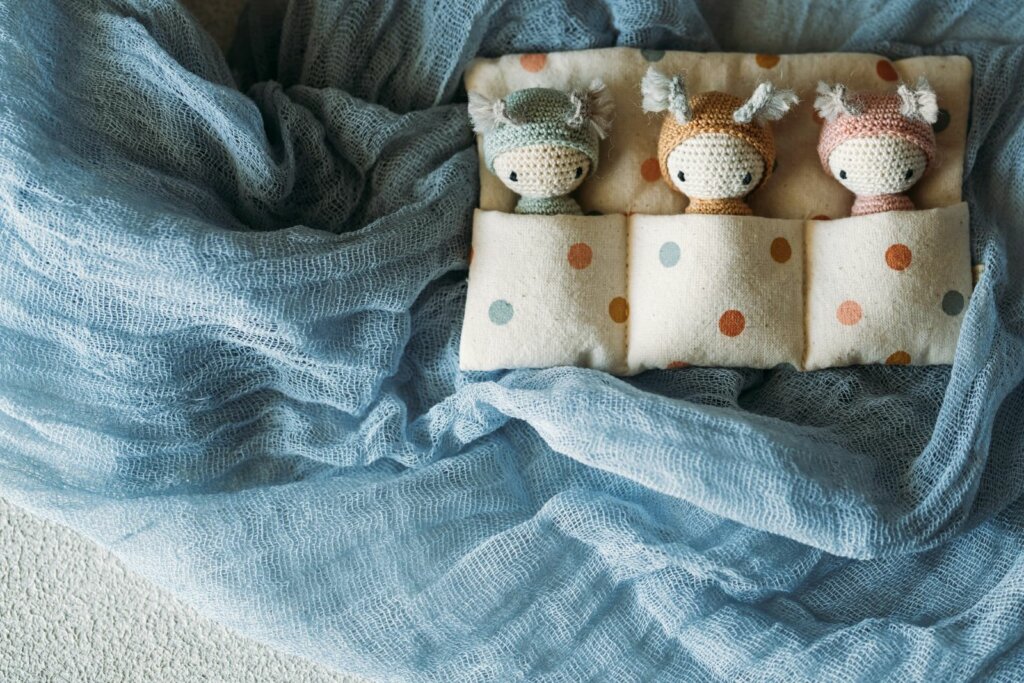
So cute! So gentle! Photo by Anya Chernik on Unsplash
It’s probably for this reason that my first eating disorder sponsor repeatedly asked me, “How can you be gentle with yourself?” I hated when he asked me that because I didn’t want to be gentle! Gentleness was too slow and I wanted results immediately! At this point you might be thinking, “Yeah but remember the tortoise and the hare? You can win a race if you’re slow and steady.” However, I’d argue even slow and steady is not the same thing as gentle.
The advice when it comes to writing is that you should do it every day. “Make space for the muse to emerge,” and all that. We glorify consistency but is that really gentle? There are some days I can’t work on my novel, or rather, I choose not to because I’m overtired or I have a headache or my brain isn’t functioning. The “slow and steady” method would tell me to write for five minutes anyway. The gentle method would say, “It’s OK to take a break.”
I don’t always believe that. I feel guilty when I don’t write but there’s wisdom in the question from my first sponsor because not being gentle with myself is how I wound up in recovery for compulsive eating and exercising. Not being gentle with myself was a recipe for burnout, resentment, and frankly, misery. I’ve had enough misery and there’s always something to be miserable about but I’d rather not fan that flame. My last couple of posts have been about happiness because that’s what I want for myself and others. I want us to be happy not because we stumbled into Shangri-La but because we’re taking care of ourselves and each other. In a culture that lionizes force, let’s instead be gentle.
I dream of a world where we remember there’s a place for gentleness. A world where we understand slow and steady isn’t the same as gentleness. A world where we let ourselves take breaks when we need them without guilt. A world where we treat ourselves with care and remember it can be gentle.
Another world is not only possible, it’s probable.
I love astrology for many reasons but one of them is that it offers me perspective. Starting in 2008, Pluto entered the sign of Capricorn and proceeded to show us the dark underbelly of themes associated with that sign: money and power, primarily. We’ve seen corruption in the banking industry, politics, the judicial system, and more. The evils of white supremacy and patriarchy have stared us in the face. That’s not to say some people weren’t talking about these things before 2008, because they were, but when Pluto moved into Capricorn, these issues became mainstream.
What we’re seeing now is the last gasp of that old way of being, embodied by Donald Trump. He is a convicted felon, a white supremacist, and a perpetrator of violence against women. Oh, and he wants to be the next king of the United States. Whereas in years past people were more secretive about these things, now it’s all out in the open. As you likely know, on July 26 Trump said, “Christians, get out and vote, just this time. You won’t have to do it anymore, you know what? Four more years, it’ll be fixed. It’ll be fine. You won’t have to vote anymore my beautiful Christians.”
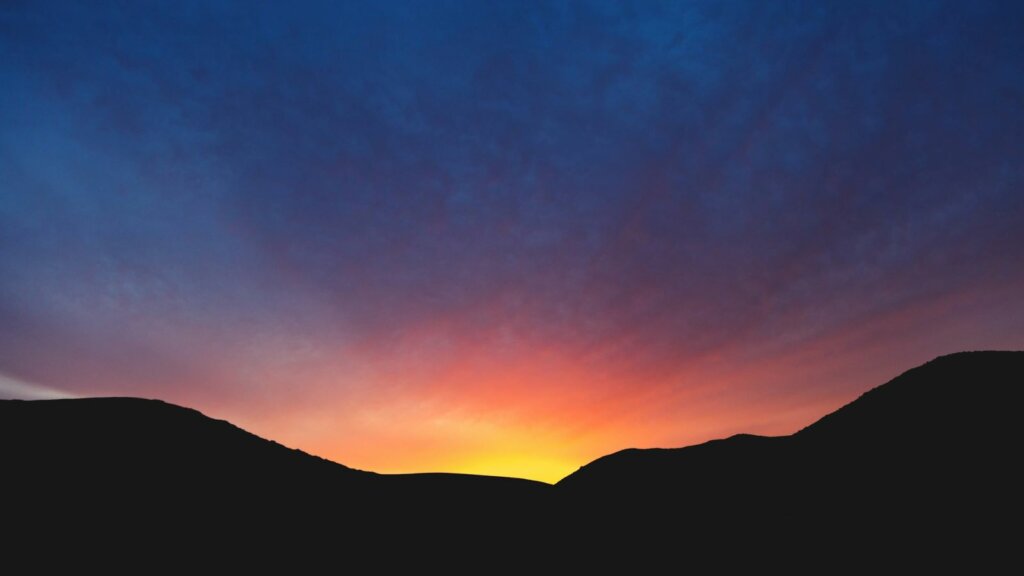
A new day is dawning. Photo by Austin Schmid on Unsplash
So that’s terrifying. But you know what gives me hope? That Pluto is moving into Aquarius. Pluto in Aquarius says, “Screw top-down hierarchy – give me bottom-up! Power to the people, baby!” Whereas the dark side of Pluto in Capricorn is a consolidation of power, just as Trump is displaying, Pluto in Aquarius is about empowering the individual. It says, “You do you. Let your freak flag fly, honey!”
Zooming out gives me hope that we’re heading in a positive direction and it supports the sentiments of my spiritual teacher who says:
“There are some people who are pessimistic. They say that the society around us is very bleak … Pessimists say this because they have never made any detailed study of human history, nor do they care to. Had they done so, they would certainly be optimistic, because if they had looked carefully at the symptoms of pause, they would have realized that significant preparations were being made for the subsequent phase of speed. So under no circumstances should human beings be pessimistic. That is why I am always an incorrigible optimist because I know that optimism is life.”
Optimism is life and I’m choosing to keep living. That means that while some people’s words and behavior are appalling and terrifying, I’m choosing to believe things can and do get better. That we’re entering a new era. This post is very quote-heavy but I’m going to share another one from my spiritual teacher because he says it better than I can:
“Just as the advent of the purple dawn is inevitable at the end of the cimmerian darkness of the interlunar night, exactly in the same way I know that a gloriously brilliant chapter will also come after the endless reproach and humiliation of the neglected humanity of today.
“Those who love humanity and those who desire the welfare of living beings should be vigorously active from this very moment, after shaking off all lethargy and sloth, so that the most auspicious hour arrives at the earliest.”
I’m doing what I can so that the auspicious hour arrives sooner rather than later and I hope that you are too because together we can bring about the dawning of a new age.
I dream of a world where we remember that nothing lasts forever. A world where we understand even corruption gets stamped out eventually. A world where we realize that optimism is life. A world where we all work together to bring about the dawning of a new age.
Another world is not only possible, it’s probable.
Cycles are on my mind because things from my past are looping back. I ran into someone I hadn’t seen in seven years. The clothing from when I was a teenager is making a comeback. We’re again having a Trump/Biden showdown. I can’t seem to articulate what I want to convey about all this so instead I’m resharing a post from September 2023. That means I’m not currently migrating old pictures, nor is it Mercury retrograde, but my overarching point is still relevant. Enjoy.
Right now, I’m migrating old pictures from my phone to my computer. In part, it’s to create more space but it’s also because I’m in the mood to clean and clear. In other words, I’m acting very much in line with Mercury retrograde, which is the time to reflect, reassess, and remove. Anything that begins with “re” is an appropriate Mercury retrograde activity.
What’s interesting is that instead of looking at the photos with wistfulness and nostalgia like I usually do, I’m struck with the parallels between then and now. My pictures from 2015 and 2016 show me with friends, visiting beautiful places in nature, flying to different states to attend weddings, and smiling with my meditation community. You might say, “That’s always what your pictures show. That’s nothing new,” and while there is consistency, 2015 and 2016 also held an excitement, a verve to my life that I haven’t felt in a long time.
In the ensuing eight years, the community I built broke apart, people moved away, relationships changed, and I didn’t have excitement or verve anymore. I was in a different cycle of life. But here I am, with a resurgence of verve and excitement. I’m meeting new people left and right, I’m building community, and there’s more energy. It’s as if the wheel of life turned once more and I’m re-experiencing a similar pattern.
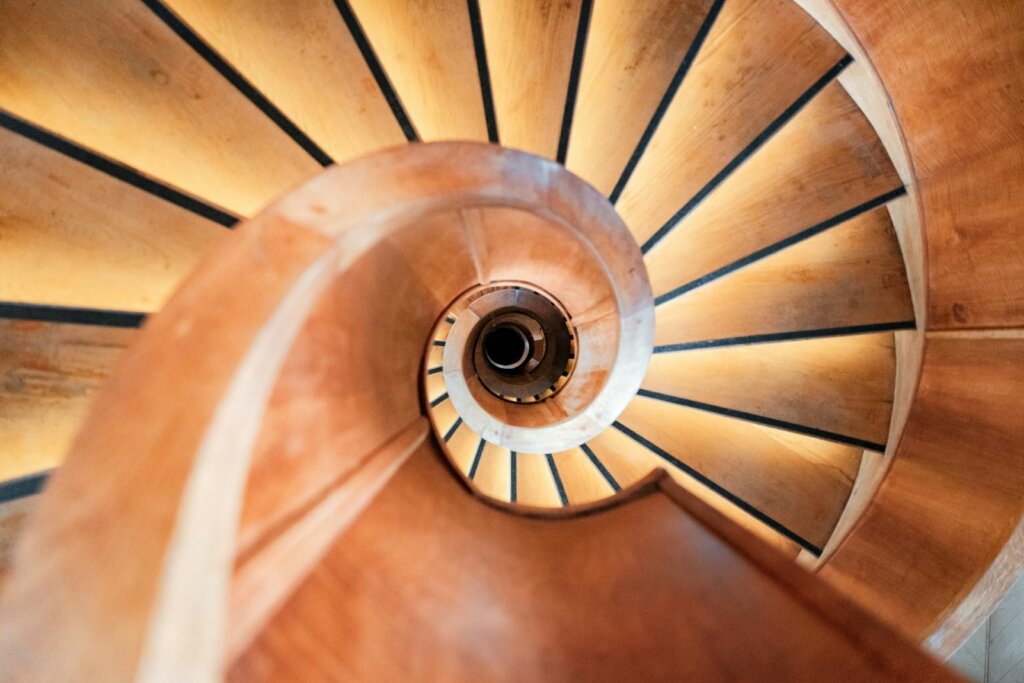
Life is like a spiral, not a line. Photo by Ansgar Scheffold on Unsplash
As if to underscore my point, an enormous dragonfly whizzed by my window while writing this. I haven’t seen a dragonfly where I live for years and I regularly stare out the window. According to animal shamanism, “Dragonfly reminds you that change is the only constant in life. When dragonflies surround you, change is on the horizon …. Dragonfly can also be a positive omen indicating you are ready for a change to take shape in your life. Be flexible and adapt to evolving circumstances and you can progress in ways you haven’t imagined.”
So often when I think of change, I think of linear progress, of being transported to somewhere I’ve never been before. But today I’m realizing change is cyclical, just like everything in nature. We have day becoming night, spring becoming summer, and the moon waxing and waning over and over again. Human beings are embedded in nature, we are not separate from it so it makes sense that our changes would also be cyclical.
Change is the only constant in life, which is why my spiritual teacher says, “Here in the universe, nothing is stationary, nothing is fixed. Everything moves; that’s why this universe is called jagat. Movement is its dharma; movement is its innate characteristic.”
We are also moving and sometimes that movement is a spiral. It seems like we’re in the same place, but as with a spiral staircase, we aren’t exactly. We’re circling back, but we’re approaching the situation with a new perspective from a similar place.
I dream of a world where we recognize we are always moving and changing. A world where we understand just as nature has its cycles, we do too. A world where we realize change isn’t linear, progressing in a straight line, but more like a spiral shifting us to a similar, but slightly different place every time. A world where we understand things circle back.
Another world is not only possible, it’s probable.
I keep thinking about a poem/quote I read from Dr. Clarissa Pinkola Estés that I’ll share an excerpt of:
“We do not become healers.
We came as healers.
We are.
Some of us are still catching up to what we are.
We do not become storytellers.
We came as carriers of the stories
we and our ancestors actually lived.
We are.
Some of us are still catching up to what we are.
We do not become artists.
We came as artists.
We are.
Some of us are still catching up to what we are.
We do not become writers…dancers…musicians…helpers…peacemakers.
We came as such.
We are.
Some of us are still catching up to what we are.”
Her quote/poem speaks to me because for about the past year I’ve engaged in a deep recovery and reclaiming of my artistic self. For a long time, I joked that I couldn’t write fiction to save my life. It was a joke but also, I meant it. I didn’t think I could write fiction, didn’t think of myself as creative or artistic. I had moments where I proclaimed, “I’m an artist!” and then quickly forgot those and fell back into the belief that I’m not a creative person.
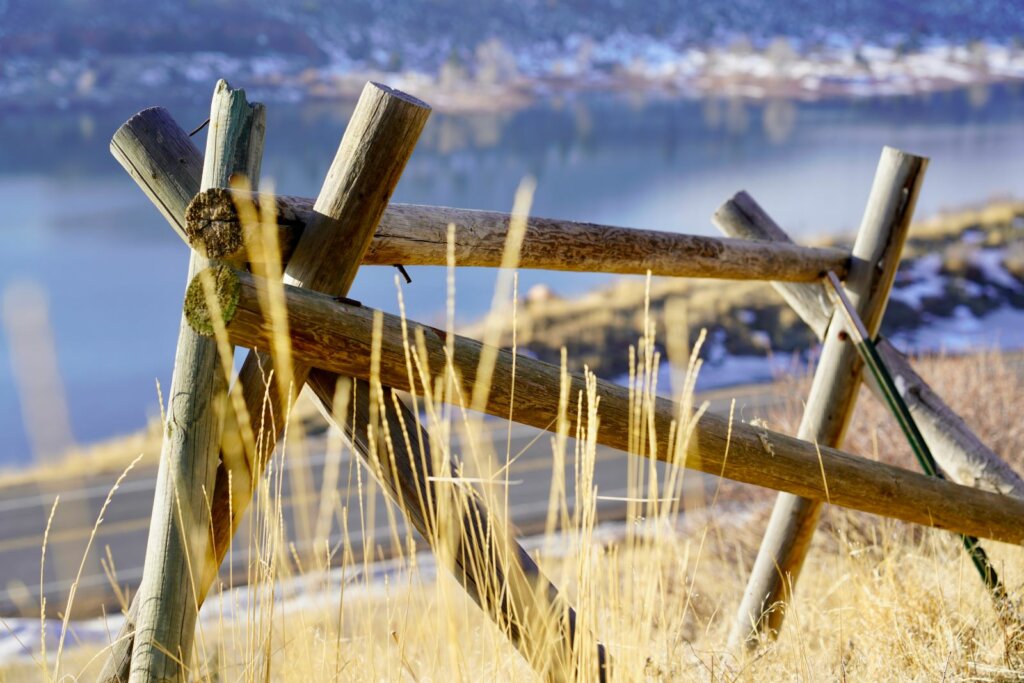
Why this picture? Unclear! It came up when I searched for “reclaimed.” Maybe the wood is reclaimed. Photo by Chris Lorensson on Unsplash
That might sound strange considering I wrote a novel but in my mind, the first one didn’t count because it was based so much on my real life. And this second novel, which isn’t based on my real life, has been a struggle, let me tell you. I fight against the belief that I can’t write it pretty much every day. In part, the struggle is because I have a perception that I’m not a storyteller, that I’m a journalist who tells stories about real life and real people but can’t create imaginary worlds. But is that really true?
The other week I found a modern retelling of “Little Red Riding Hood” that I wrote when I was probably 10. The text is in calligraphy and the pictures were also drawn by me. There is literal evidence to show I’ve always been a storyteller. As Estés says, I didn’t become a storyteller, I came as a carrier of the stories I and my ancestors actually lived. This is true in more ways than one. I’m VERY attuned to intergenerational trauma and collected my ancestors’ stories, both good and bad. I’m the family historian because stories matter to me. I am a storyteller and storykeeper.
I am reclaiming the identity of storyteller and catching up to what I am, to what I already came here imbued with. I wish it could be a “one and done” sort of thing but for me, it hasn’t worked like that. It’s been a daily process of remembering and reclaiming my artistic self.
This post is about me but I’m sharing it because I wonder if there’s a part of you that’s been long buried that it’s time to resurrect. What has stayed hidden for too long that wants to see the light of day? What do you want to reclaim, recover, or remember? I bet it’s something powerful and important.
I dream of a world where we recognize some things we don’t become, some things we already are. A world where we understand we came into the world with certain gifts and sometimes we need to retrieve those gifts. A world where we let go of identities that no longer serve us and reclaim who we truly are.
Another world is not only possible, it’s probable.
When I was 20, I studied abroad in London and noticed a man hanging up a payphone before he approached me. He sold me a song and dance about how he lost his luggage, had no money, and needed help. He told me I should write down my address so he could pay me back and being the gullible and trusting person that I am, I bought everything he said. He was effusive in his praise, saying, “God bless you and your family. You’re a good person,” etc. I felt like a hero in the moment.
Looking back though, it was a scam. He hung up the payphone as soon as he saw me like he was searching for a target. And he was too over the top, too aggressive, and didn’t act at all like a desperate person who had truly lost their luggage and all their belongings. That man had no intention of paying me back and only wanted to make a quick buck preying off naïve girls like me. I felt like an idiot after the fact for believing this man and I let it color all my future interactions with people asking for money.
Fast forward three years and while walking to work in San Francisco, a man who looked dazed and had a cut on his forehead approached me and said he was just mugged. He, too, asked for money but I refused because I wasn’t sure I could trust him based on my past experience with the man in London. My reasons were valid but looking back, he really was in need of help and I botched that service opportunity. In that story for that man, I wasn’t the villain because I didn’t mug him but I’m sure he cast me in the role of a jerk. And he’d be right.
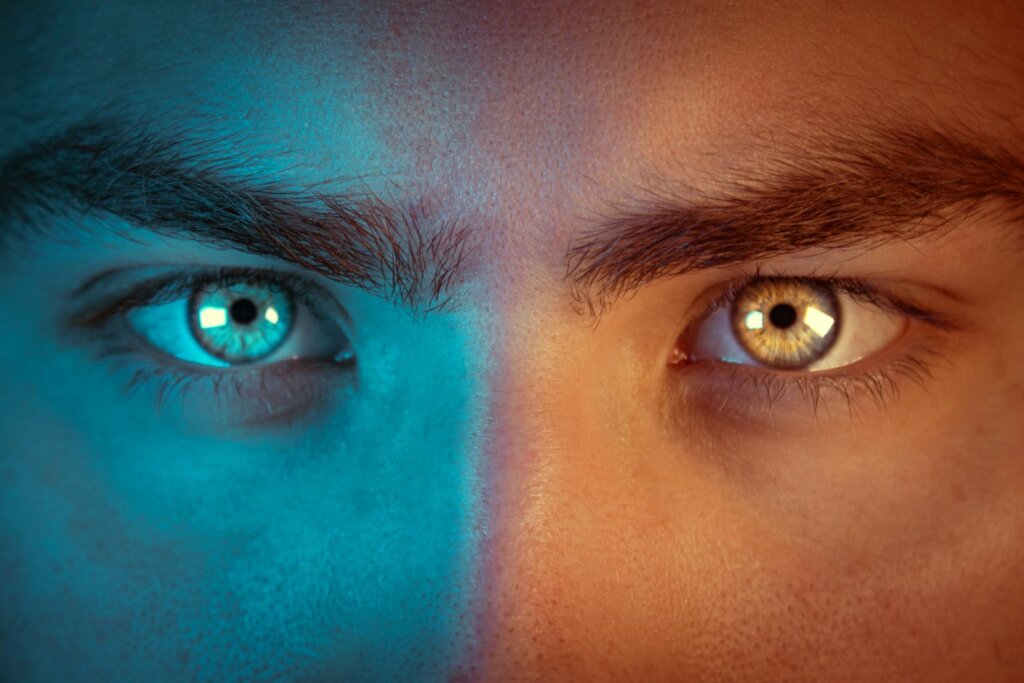
Human beings are multifaceted. Photo by Gabriel Meinert on Unsplash
Oftentimes we paint ourselves in certain lights and have a static self-image. “I’m a good person,” we might say. Or, “He’s a bad man,” but the truth is far more complicated. We are all heroes and villains depending on the circumstances. We are all good and bad and to think otherwise only exacerbates what psychologists call cognitive bias, which is what it sounds like. It helps us make sense of the world and reach decisions with relative speed but a bias also means we discard information that doesn’t prop up our view of reality or a person.
While in some ways a cognitive bias is helpful, it’s also harmful because it has us ignoring certain behaviors or information. And on a personal level, it keeps us from growing. In order to grow, we have to see things as they really are, not what we think they are, ourselves included.
This topic is on my mind because I see a heck of a lot of people saying, “I could never do that,” which is patently false. We are all capable of good and evil. We are all heroes and villains. That’s because there are two forces constantly playing tug of war in this universe: vidyá and avidyá.
They could be translated into good and evil but that’s not quite right. They’re about the movement toward subtlety or crudeness. Avidyá seeks to drag the mind toward crude objects and bind us to the things of this world like cars, homes, and luxury goods. But it also binds us to staticity in the form of ideas. Vidyá pulls the mind toward higher ideals and asks us to expand beyond narrow sentiments, including trying to put ourselves and others in neat boxes. The force of vidyá says, “You will make mistakes but you can learn from them and become a better person.” And that’s exactly what I want for us all.
I dream of a world where we recognize we are all like the yin-yang symbol with a little bit of everything. A world where we understand no person is wholly good or wholly bad. A world where we remember there are two forces in the world pulling us toward crudity or subtlety. A world where we choose to turn toward subtlety whenever and wherever we can because we remember we all have the capacity to be heroes as well as villains.
Another world is not only possible, it’s probable.
I feel unmoored because a very significant relationship has entered a new era. For context, this is a person who knows everything about me – all the things I want to keep hidden, my missteps, the self-destructive thoughts and actions – everything. She’s witnessed every crisis and every celebration from the last 12 years. She’s offered guidance, care, and support through it all and played an enormous role in me being the person I am today. In other words, she’s a true MVP. But now she’s not available like she was before and my inner child is freaking out.
It’s not only about the change in this relationship. It’s about the many, many changes over the past month. The things I thought were steady have turned out to be not so steady. Other relationships have dropped off, regular events have come to an end, and people died. All of it has me asking, “What can I even hold onto? What can I count on?”
What’s funny is that sometimes the universe gives me the answers to my questions in advance. Earlier this month, I had a conversation with a friend about precisely this topic. I told him the constant, unchangeable, permanent entity in our shared spiritual tradition is called Sat and that when we meditate, we are practicing Iishvara prańidhána. “Iishvara” means controller of the universe and “prańidhána” means to adopt something as a shelter. Therefore, Iishvara prańidhána means to adopt the controller of the universe as a shelter. It means to take refuge in the controller of the universe. In other words, to remember what is truly unchangeable.
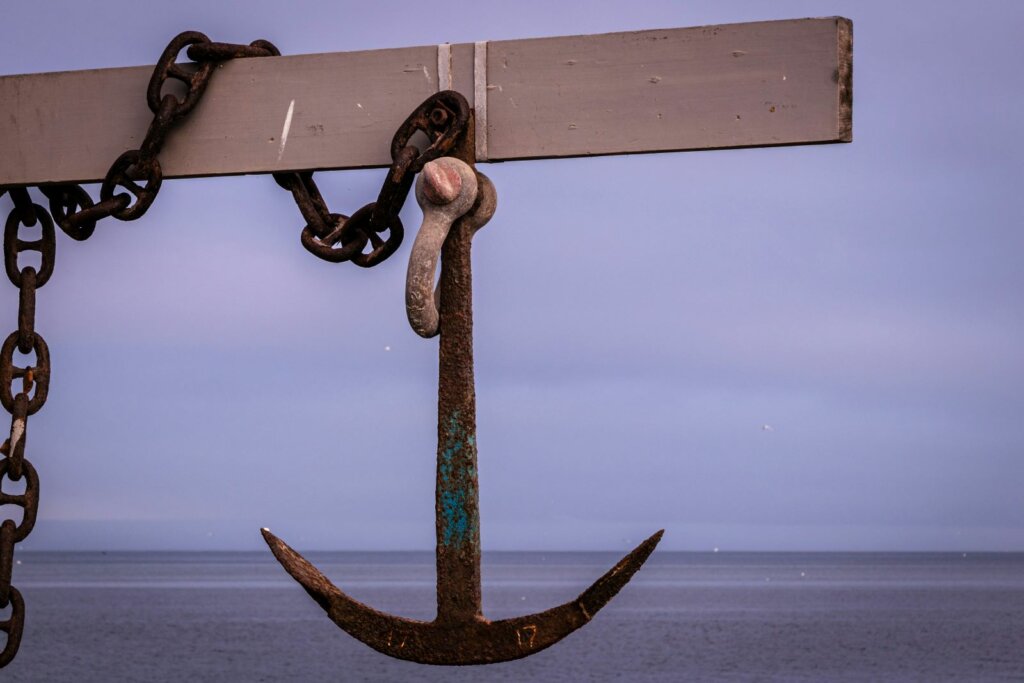
We all need an anchor. Photo by Grant Durr on Unsplash
The joke’s on me because I thought I was having a casual conversation about spiritual philosophy with a newcomer when instead I was laying the groundwork for a huge spiritual lesson. My inner child, and other parts of me, want good things to stay the same. We want cherished relationships to remain steady and ever-present but they don’t. The nature of this universe is to change and I can no more stop things from changing than I can control when the sun sets.
When I contemplate how everything changes, I could curl into the fetal position and rock myself or I could do what my spiritual teacher suggests, which is to remember what is actually permanent, unchangeable, constant, and steady. Yes, it’s the Cosmic Consciousness but there’s also a relationship with that entity that’s important to remember.
He tells us that Cosmic Consciousness is our one true friend, and even more than that, the Divine Beloved is bandhu, or a person or entity who cannot stand separation. According to my spiritual philosophy, Cosmic Consciousness is inextricably involved with everything and cannot stand to be separated from Its creations.
Everyone else will come and go but the Divine Beloved is with me now, forever, and always through every lifetime. In this period of my life where so much is upending, it’s nice to remember I do have a reliable friend I can turn to all the time in all the ways. There is something I can hold onto like an anchor when I feel adrift at sea and that something is the Divine Beloved.
I dream of a world where we remember the only constant in life is change. A world where we stop trying to make impermanent things permanent. A world where we know where to turn when life gets choppy and we need something steady. A world where we recognize there is something we can hold onto and that something is the Divine Beloved.
Another world is not only possible, it’s probable.
I have some notes for the cosmic powers that be. Is there a way to lodge complaints? A manager I can speak to? No? Who designed this system?!? At times like these, I understand why people question the existence of God/Higher Power/Source, etc. because if there is a God, why would It allow all these awful things to happen?
I think about this a lot both in terms of my personal life and in the broader world. Being the human I am, I want the world to revolve around me. I want things to go how I think they should go and struggle when they don’t. However, I have enough humility to recognize my perspective is limited. I’m not omniscient, omnipresent, or omnipotent but I do believe there is an entity that has all those traits.
If that’s so, then how can I account for all the atrocities in the world? Wouldn’t an all-powerful loving entity want to stop things like war? First off, yes, which is why every spiritual teacher ever preaches love, acceptance, and respect. The sticky wicket is that humans have free will. According to my spiritual philosophy, we are all on a spiritual journey. Not just humans but plants and animals too. Plants and animals are moving instinctually toward Cosmic Consciousness but humans have the blessing? the curse? of being able to choose whether they want to move closer or further away. And sometimes people choose things that I wouldn’t.
But an omnipotent entity can make anything happen because that’s what omnipotent means so why wouldn’t a loving Higher Power intervene in these instances? Why wouldn’t a loving Higher Power say, “I’m putting a stop to all this conflict”? The answer I keep coming to VERY begrudgingly is in this spiritual journey, Cosmic Consciousness is playing the long game. It’s not only about what happens today, tomorrow, or 50 years from now. It’s about what happens 500 years from now, 5,000 years from now. What will best serve humanity’s evolution? What will help us evolve as a species?
I hate this answer, truly I do, but sometimes what helps us grow the most is strife. I used this quote just the other week but it’s again applicable: “Whenever there is clash or conflict within any structure, whether subtle or crude, it acquires subtlety. This applies to both psychic clash and physical clash. The more subtle the crude mind becomes as a result of internal clash, the greater its spiritual awakening.”
In other words, I think society is undergoing a spiritual awakening. Do I love the mechanism for it? Not in the least, but I’m choosing to believe this is part of a larger plan that I’m not privy to. That all this psychic and physical clash is fertilizer for our evolution, leading us somewhere we want to go.
To quote my spiritual teacher again, “All human beings want light. One individual human is more luminous and more throbbing than that universal darkness. So human beings should always be optimistic. The cimmerian darkness cannot retard your progress, cannot cover the light of the human heart. The spirit of your heart must move on and on against obstacles. Kick away your obstacles like pebbles from your feet – you are stronger than your obstacles.”
I firmly believe the obstacle we are kicking away from our feet is narrow-mindedness and anything that seeks to strip us of our humanity. Whatever reduces people to segmented groups, whatever urges binary ways of thinking and acting, whatever encourages us to cover the light of our hearts is what we’re working to get rid of day by day, little by little until eventually, more of us will be spiritually awake than asleep.
I dream of a world where we take heart in trying times because we understand there’s something bigger than us happening. A world where we realize we are each playing a part in a Cosmic drama. A world where we recognize that growth happens in response to clash. A world where we remember society as a whole is experiencing a spiritual awakening.
Another world is not only possible, it’s probable.
